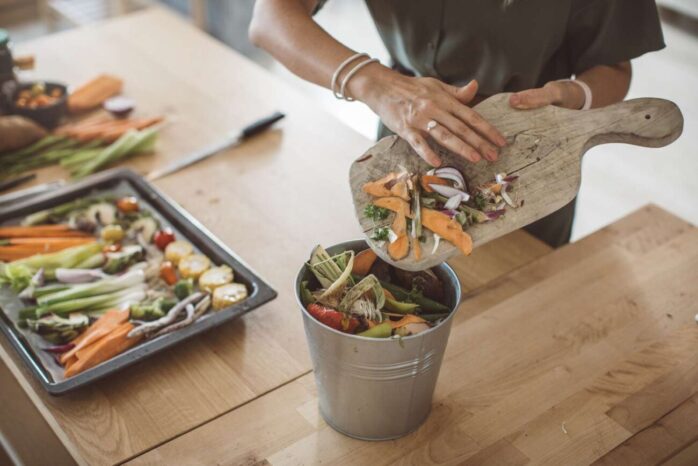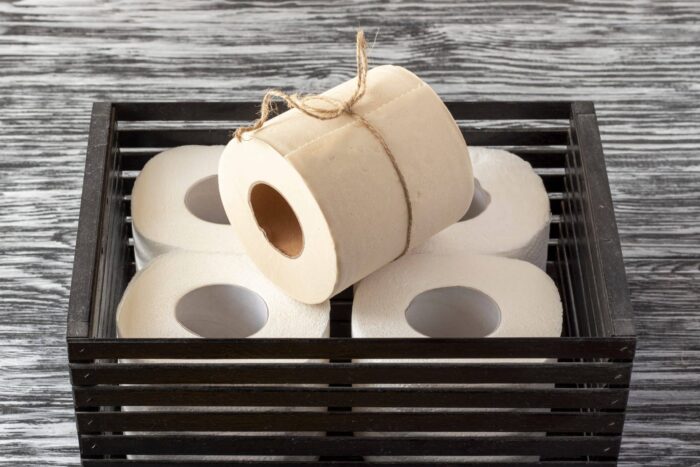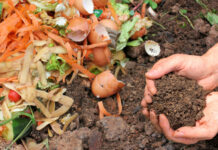
Living an eco-friendly lifestyle not only benefits the planet but also promotes personal well-being. By making simple swaps in our daily routines, we can significantly reduce our waste and use of limited resources. This article will explore seven easy-to-implement lifestyle changes that can help us protect the planet and contribute to a greener future.
Reusable Water Bottles: Staying Hydrated, Cutting Down Waste
Single-use plastic water bottles contribute to the global plastic pollution crisis. Nearly 250 billion bottles end up in landfills and waterways every year. By investing in a reusable water bottle, you can avoid adding to the problem. Carrying a water bottle can also save you money in the long run. Look for a durable, BPA-free bottle and carry it with you to stay hydrated while on the go.

Energy-Efficient LED Bulbs: Illuminating Your Space, Conserving Energy
Swapping traditional incandescent bulbs with energy-efficient LED bulbs can lead to substantial energy savings. LED bulbs use significantly less electricity and last longer, reducing the frequency of replacements. LED bulbs also have a much longer lifespan. While a regular bulb works for 1,000 hours, an LED bulb can light up your room for 100,000 hours! This means a single LED bulb can work for more than a decade.
Cloth Shopping Bags: Sustainable Carriers for a Greener Shopping Experience
Plastic bags are a major contributor to pollution and harm wildlife. Millions end up in the ocean, where they affect marine life. Using cloth shopping bags is a simple yet powerful choice for reducing single-use plastic waste.
Keep a few reusable bags in your car or backpack to ensure you always have them on hand when shopping. Cloth bags are also durable and stylish. However, making cloth bags also has an environmental cost, as cotton is a water-intensive crop. For that reason, you must try to use your cloth bags as often and as long as possible.

Bamboo Toilet Paper: Gentle on You, Gentle on the Environment
Making the switch from traditional toilet paper to bamboo toilet paper can have a significant positive impact on the environment. Toilet paper is made from non-recycled wood pulp and is a driving source of deforestation. Nearly 15 million trees are cut down every year to make those tiny squares of paper.
Unlike traditional options, bamboo is a fast-growing plant that requires minimal water and no pesticides to thrive. This sustainable resource is naturally biodegradable and regenerates quickly. By opting for bamboo toilet paper, you can reduce the ecological impact of deforestation.
Plant-Based Cleaning Products: A Clean Home and a Clean Planet
Many conventional cleaning products contain harmful chemicals that are detrimental to the environment and human health. Many contain dangerous chemicals, known as volatile organic compounds that pollute the air and the water. Some of these compounds can hang around in our indoor environments for weeks, or even months after use.
Swap out unhealthy chemicals for plant-based, biodegradable products, like vinegar, castile soap, and baking soda. You can also find products in eco-friendly packaging that minimizes plastic waste.

Composting: Turning Food Scraps into Nutrient-Rich Soil
The food industry can be extremely wasteful. Not only does commercial farming take up considerable resources, but more than one-third of all food produced ends up in the trash. Once in the landfill, food rots away and produces methane gas, which enters the atmosphere and traps heat in the ozone. Over time, this exacerbates the greenhouse effect and increases the Earth’s temperature. All of this can be avoided by compositing Instead of throwing food scraps away.
Composting is a natural process that turns organic waste into nutrient-rich soil. By diverting food waste from landfills, you can reduce methane emissions while creating soil to enrich your garden or potted plants.
Eco-Friendly Transportation: Moving Towards a Greener Commute
Opting for greener transportation methods can drastically reduce your carbon footprint and contribute to cleaner air. Consider biking, walking, or using public transportation for your daily commute instead of driving. These alternatives not only minimize greenhouse gas emissions but also promote physical health. For longer distances, carpooling or choosing electric or hybrid vehicles can make a significant difference. By rethinking how we travel, we can collectively ease traffic congestion, reduce pollution, and save on fuel costs, making our cities and communities more livable and environmentally friendly.

Zero-Waste Kitchen Practices: Minimizing Food and Packaging Waste
Embracing a zero-waste lifestyle in the kitchen involves reducing food waste and minimizing the use of disposable packaging. Start by planning your meals and shopping with a list to avoid buying more than you need. Store food properly to extend its shelf life and get creative with leftovers to ensure nothing goes to waste. Additionally, swap out single-use items like plastic wrap and sandwich bags for reusable alternatives such as beeswax wraps and silicone pouches. By adopting these practices, you can significantly cut down on kitchen waste, save money, and support a more sustainable food system.
Water Conservation: Protecting Our Most Precious Resource
Water is a finite resource, and conserving it is crucial for sustaining our environment and future generations. Simple actions like fixing leaks, installing low-flow fixtures, and using water-efficient appliances can make a big difference in reducing your water usage. Additionally, being mindful of your water consumption habits, such as taking shorter showers and only running the dishwasher or washing machine with full loads, can further conserve water. By prioritizing water conservation in our daily lives, we can help preserve this vital resource, reduce energy consumption (required for heating and treating water), and protect aquatic ecosystems.

Sustainable Personal Care: Mindful Choices for a Healthier You and Earth
Opt for personal care products that prioritize sustainability. Look for brands that avoid harsh chemicals, and prioritize eco-friendly packaging. From shampoo bars to refillable deodorants, there are numerous alternatives available that are kinder to both your body and the environment.
Every choice we make has the power to protect our planet and inspire others to follow suit. These seven eco-friendly swaps are easy to incorporate into your daily life. Start today and be part of the movement towards a greener and more sustainable world.









